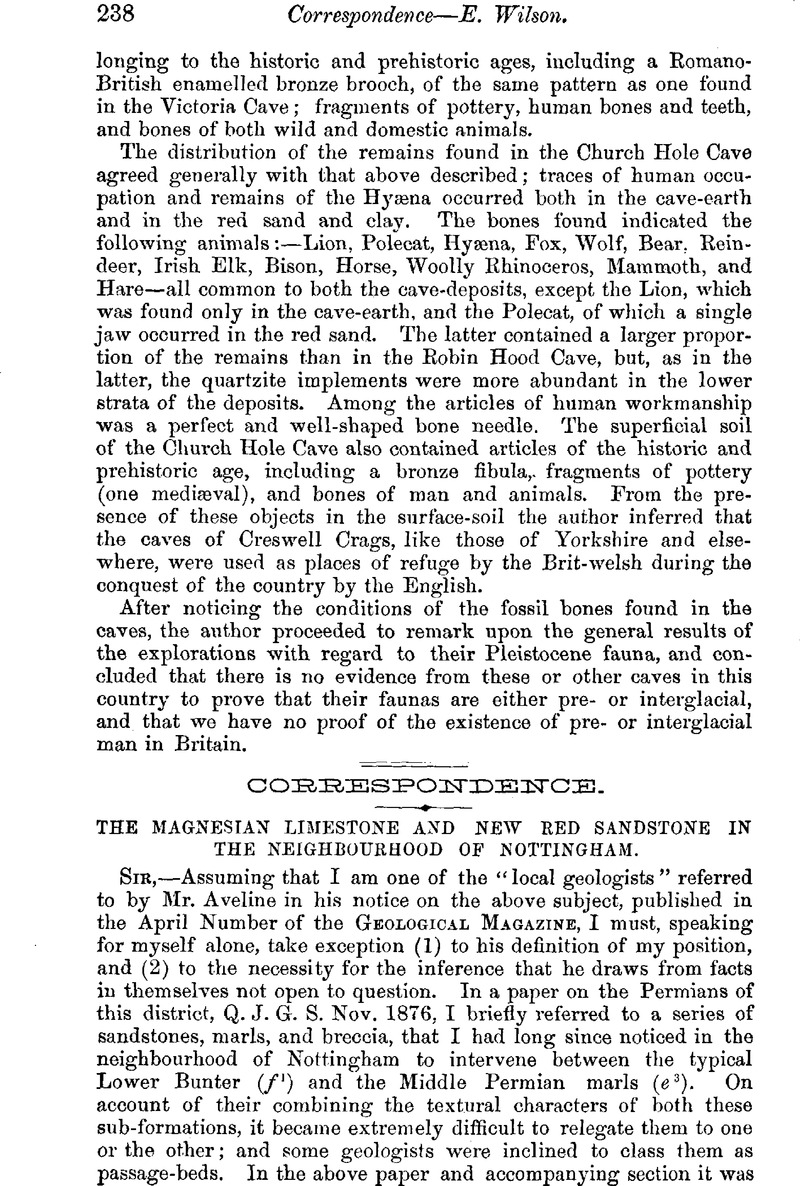Published online by Cambridge University Press: 01 May 2009

page 240 note 1 The persistent outcrop of this thin and denudable series between the Magnesian Limestone and Lower Bunter formations negatives the idea of any great amount of denudation between these two periods in this neighbourhood.
page 240 note 2 It thus appears that the Magnesian Limestone overlaps its own Marl Slate base, with which it appears to be perfectly conformable. Yet no one supposes there is a “great break” between them. Had, however, this overlap been concealed by a cloak of Lower Bunter, that formation, and not the Magnesian Limestone, would have been credited therewith, and the fact cited as an additional proof of the great break between the Permian and New Red Sandstone periods.